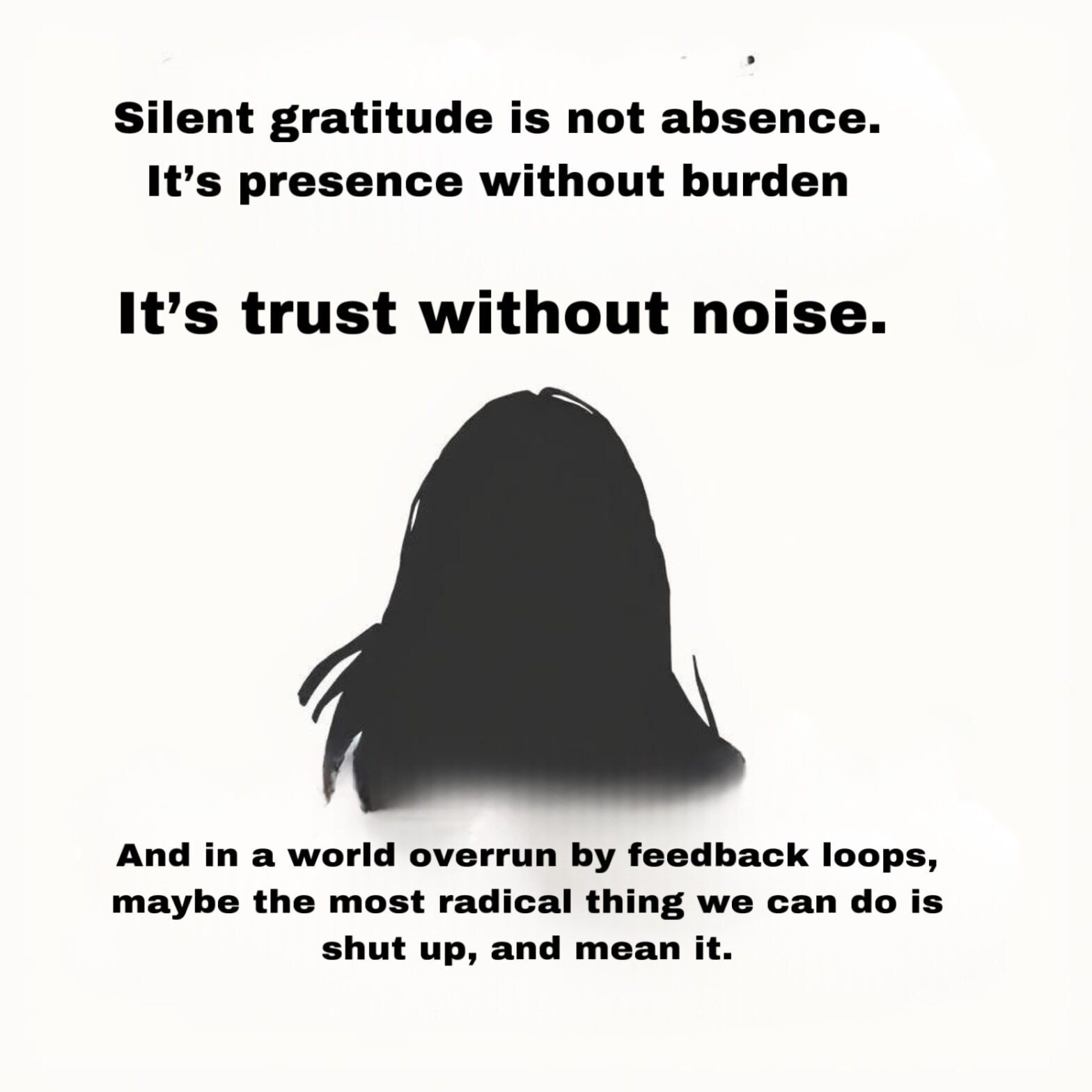Saving Energy in the Age of Excess Feedback – A Comprehensive Guide
The Silent Thank You – Saving Energy in the Age of Excess Feedback
Every time you type “Thanks!” in Slack, a light blinks in a data center. A server routes your message. A colleague’s focus is disrupted. Multiply this by millions of interactions per day, and we’re not just wasting time… we’re quietly draining energy, both digital and human.
In an era where digital communication is a cornerstone of our daily interactions, it’s crucial to understand the environmental impact of each message we send. While a simple ‘thank you’ may seem harmless, the cumulative effect of countless messages can lead to significant energy consumption. Each digital interaction involves data processing, storage, and transmission, all of which require power. For instance, studies have shown that the energy consumed by data centers is on the rise, paralleling the growth of online communication.
This reflection on gratitude is particularly important as we adapt to remote work environments. For many, the absence of face-to-face interaction has transformed how we express appreciation. Instead of a warm smile or a handshake, we’ve resorted to quick messages that, while convenient, contribute to an overload of notifications and digital clutter.
This isn’t an anti-gratitude manifesto. It’s a systems-level invitation to reconsider how, when, and why we acknowledge each other in a world defined by velocity and overload. Because sometimes, the most respectful thing you can say is… nothing.
In conclusion, as we navigate the complexities of modern communication, let’s aim for thoughtful interactions that honor both our colleagues and the planet. Each deliberate choice we make in our communication style can contribute to a more sustainable future.
The Hidden Cost of Courtesy
Gratitude rituals used to be intentional. A letter. A pause. A bow. Today, they’ve been reduced to automated reflexes: “Thanks!” “Got it.” “Appreciate it!” These micro-messages create micro-loads:
- Cognitive energy: Each ping pulls attention away, even if only briefly.
- Digital energy: Servers process and store even the smallest interactions.
- Emotional load: Reciprocity is often expected, creating subtle pressure cycles.
We’re not advocating silence to be rude. We’re advocating silence to be efficient. Thoughtful. Sustainable.
Systems Friction – When Politeness Pollutes
In lean teams, in rapid loops, every message matters. Feedback overload turns signal into noise. The constant need to confirm, affirm, and acknowledge becomes a drag on velocity.
Worse, it gives the illusion of communication without actually improving outcomes. It’s comfort theater. Energy spent saying something already known.
Consider the psychological aspect of constant feedback. In many corporate cultures, employees feel compelled to respond quickly to messages, fostering a sense of urgency that can lead to burnout. The pressure to acknowledge every interaction can counteract the positive aspects of teamwork and collaboration, creating an environment where employees might feel overwhelmed rather than supported.
Imagine if your thermostat sent you a thank-you every time you adjusted it. You’d unplug it.
A Ritual Reborn – Silent Acknowledgment
Let’s re-engineer gratitude.
- Use stateful signals: 👍, ✅, UI changes.
- Automate confirmation: Task moved? Status updated? Let the system speak.
- Save thanks for when it counts. When it really means something. Not as punctuation.
This is not cold. It’s clear. And clarity is kind.
Beyond Manners > Toward Cognitive Sustainability
If sustainability is about optimizing resources, let’s treat attention and bandwidth as scarce, valuable, and finite.
- What if reducing one “thank you” saved a few brain cycles?
- What if a team of 100 skipped 20,000 redundant messages a year?
- What if we respected attention as much as energy?
The Future of Courtesy
We’re not saying “don’t be kind.“
We’re saying: be deliberate.
Silent gratitude is not absence. It’s presence without burden. It’s trust without noise. And in a world overrun by feedback loops, maybe the most radical thing we can do is shut up, and mean it.

Exploring the future of communication means embracing technology that can facilitate acknowledgment without draining resources. Tools that automate simple confirmations can alleviate the cognitive load on team members, allowing them to focus on more pressing tasks. For instance, implementing software that automatically updates task statuses can reduce the need for repetitive messaging, promoting efficiency.

Moreover, exploring innovative ways to express gratitude can foster community and connection. Virtual team-building activities that celebrate achievements, such as online recognition ceremonies, can replace daily messages of thanks with significant, memorable moments. This approach not only conserves energy but also enhances team morale.











